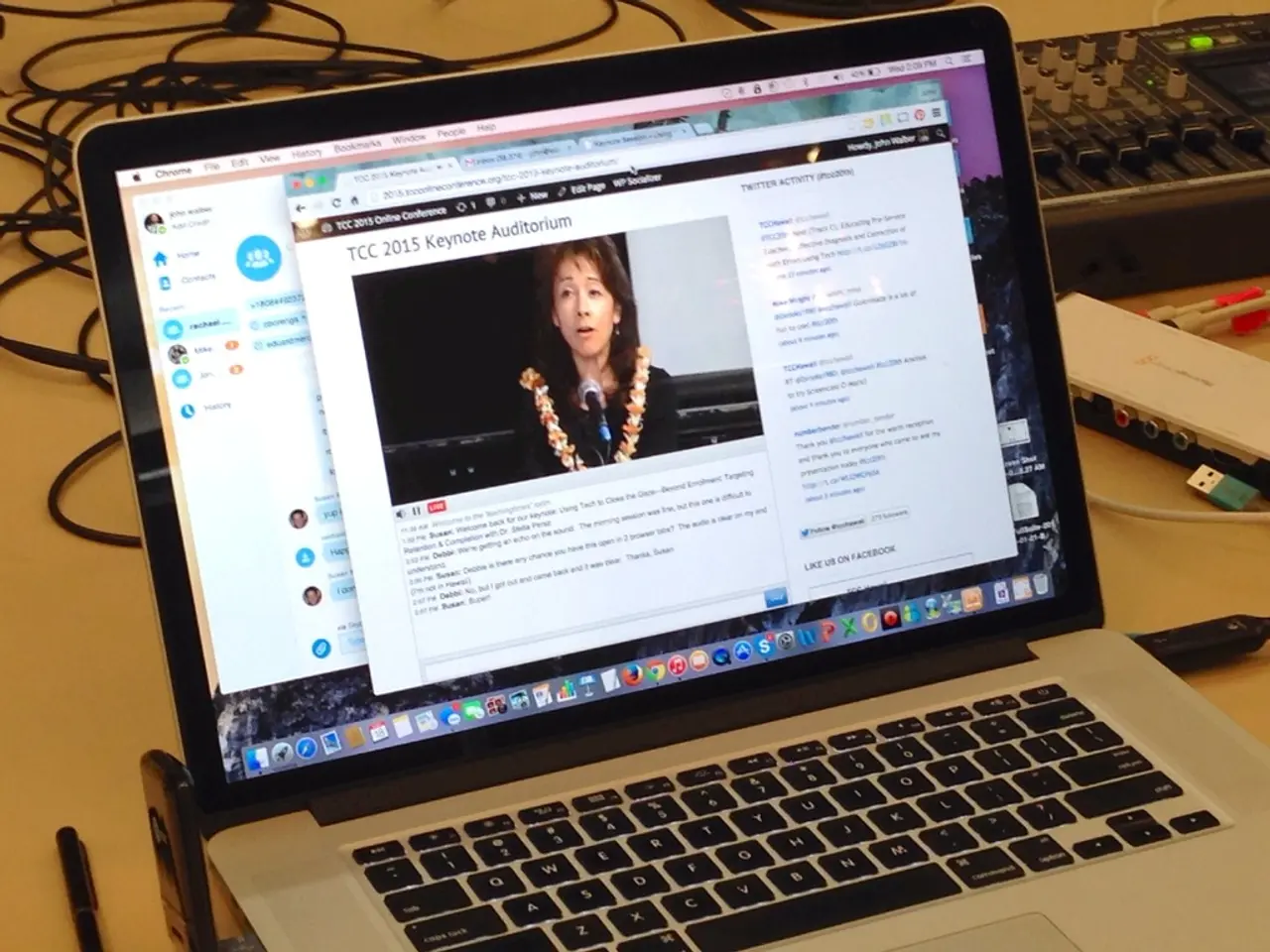European Investment Bank teams up with Rabobank in a €1 billion Small and Medium-Sized Enterprise financing arrangement
The European Investment Bank (EIB) has taken a significant step towards promoting sustainability and combatting climate change by providing loans totaling €500 million to Rabobank and its subsidiary DLL. This move is part of the EIB's pledge to invest €1 trillion in green initiatives over the next decade [7].
According to the Organisation for Economic Co-operation and Development's (OECD) 2021 report, small and medium-sized enterprises (SMEs) play a key role in the journey to net zero due to their substantial contribution to energy use, emissions, and pollution [1]. The report highlights that many SMEs are actively working to reduce their environmental footprint through innovative solutions, which can provide crucial technological solutions for climate change mitigation and adaptation.
Rabobank and DLL aim to utilise this funding to boost access to financing for local sustainability investments from SMEs and mid-caps in several European countries. Rabobank will support small-scale sustainability and agriculture projects by Dutch businesses, while DLL plans to use the loan to enhance their ability to provide more accessible, affordable, and tailored leasing solutions [3][5]. Both Rabobank and DLL have pledged to match their respective €250 million loans, making a total of €1 billion in new funding available.
The loan is categorized under blended finance, bonds, development finance, financial inclusion, agri-food, investment, and social impact [2]. This diverse categorization underscores the EIB's commitment to supporting a wide range of sustainable projects across various sectors.
Meanwhile, the EIB has also backed a Ukrainian agribusiness products producer with a €50 million loan, which will be used for financing climate-relevant and agricultural projects across the European Union [6].
In the past ten years, the EIB has provided the Netherlands with more than €27 billion in financing in various sectors, including research and development, transport, drinking water, healthcare, and SMEs [8]. The EIB director general, Jean-Christophe Laloux, expressed hope that this facility can convince other financiers to make available more support for entrepreneurs developing more sustainable projects [9].
Elsewhere, Swedfund has provided a consecutive loan to an African microfinance specialist, and IIX has launched its seventh Women's Livelihood Bond with a $60 million tranche [10]. These initiatives further demonstrate the growing global emphasis on sustainable financing and the role that various financial institutions play in supporting green initiatives.
In conclusion, the EIB's latest funding initiatives underscore the importance of SMEs in the global fight against climate change and the need for increased investment in sustainable projects. As the OECD's report suggests, SMEs are not only significant contributors to emissions but also crucial drivers of sustainable innovations that support the net zero transition.
[1] OECD (2021), SMEs and the Net Zero Transition, https://www.oecd-ilibrary.org/docserver/84a3b65f-en.pdf?expires=1680326400&id=id&accname=guest&checksum=4841F0E2D18373D935484D995D29C336 [2] European Investment Bank, https://www.eib.org/en/projects/finance/ [3] Rabobank, https://www.rabobank.com/ [4] OECD (2021), SME Policies for the Green and Digital Transition, https://www.oecd-ilibrary.org/docserver/2a285b1d-en.pdf?expires=1680326400&id=id&accname=guest&checksum=2A84A45B89956E0354F41340D46A069D [5] DLL, https://www.dllgroup.com/ [6] European Investment Bank, https://www.eib.org/en/press/news/2022/may/eib-provides-50-million-loan-to-ukrainian-agribusiness-products-producer [7] European Investment Bank, https://www.eib.org/en/about/strategy/green-deal/ [8] European Investment Bank, https://www.eib.org/en/countries/netherlands/ [9] European Investment Bank, https://www.eib.org/en/press/news/2022/april/eib-provides-500-million-to-rabobank-and-its-subsidiary-dll [10] Swedfund, https://swedfund.se/ [10] IIX, https://www.iixglobal.org/
- A key role in the fight against climate change is played by small and medium-sized enterprises (SMEs) due to their substantial contribution to energy use, emissions, and pollution.
- SMEs are not only significant contributors to emissions but also crucial drivers of sustainable innovations that support the net zero transition, as technological solutions for climate change mitigation and adaptation are being developed by many SMEs.
- The European Investment Bank (EIB) has moved to invest €1 trillion in green initiatives over the next decade, and €500 million of that has been provided as loans to Rabobank and its subsidiary DLL for promoting local sustainability investments from SMEs and mid-caps in several European countries.
- Financial inclusion, blended finance, development finance, and social impact are some of the categories under which the EIB's financing initiative falls, demonstrating their commitment to supporting a wide range of sustainable projects across various sectors.
- As more financial institutions, like Swedfund and IIX, are demonstrating with their own initiatives, sustainable financing is increasingly emphasized globally due to its role in combating climate change, promoting environmental-science, and fostering the growth of businesses.
- The growing importance of personal-finance, technology, agri-food, and other sectors related to sustainability and climate-change will continue to lead to increased investment opportunities for those looking to positively impact the environment and society through their investing.




